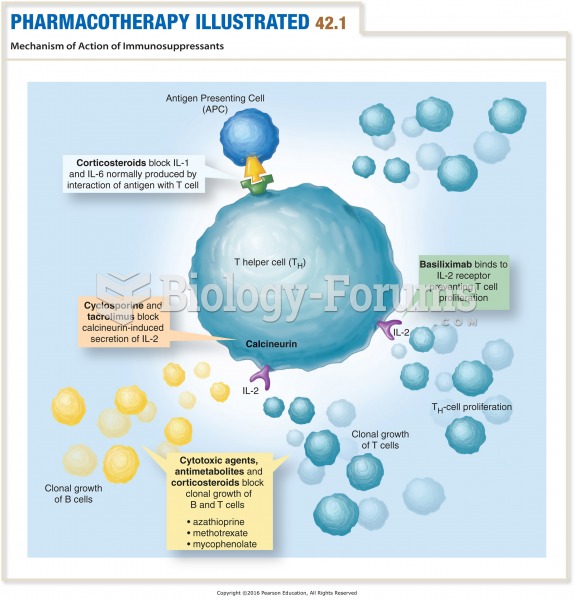|
|
|
Approximately 500,000 babies are born each year in the United States to teenage mothers.
According to the Migraine Research Foundation, migraines are the third most prevalent illness in the world. Women are most affected (18%), followed by children of both sexes (10%), and men (6%).
By definition, when a medication is administered intravenously, its bioavailability is 100%.
There are major differences in the metabolism of morphine and the illegal drug heroin. Morphine mostly produces its CNS effects through m-receptors, and at k- and d-receptors. Heroin has a slight affinity for opiate receptors. Most of its actions are due to metabolism to active metabolites (6-acetylmorphine, morphine, and morphine-6-glucuronide).
The heart is located in the center of the chest, with part of it tipped slightly so that it taps against the left side of the chest.







